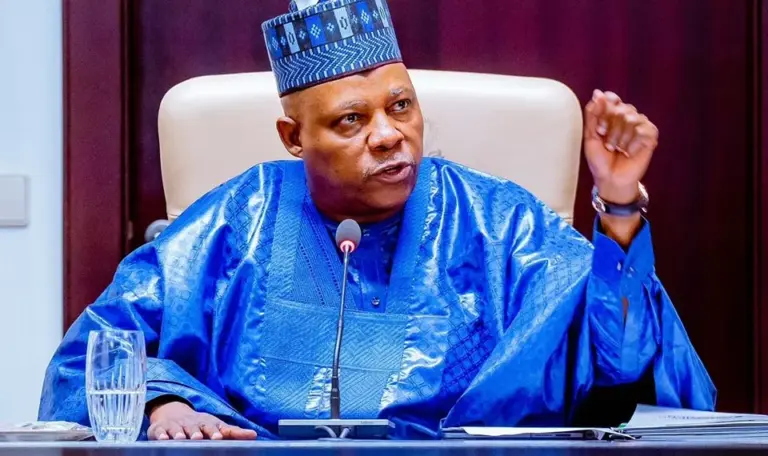Vice President Kashim Shettima has called for deeper collaboration among Nigeria’s Ministries, Departments, and Agencies (MDAs) to create a more efficient and business-friendly environment for Nigerians and investors.
Speaking at the close of a high-level retreat in Abuja organized by the Presidential Enabling Business Environment Council (PEBEC), Shettima stressed the need for innovation, synergy, and measurable outcomes in public service delivery.
Trust and Teamwork at the Core
“Trust is the most valuable currency in governance. Without it, no reform can endure,” the Vice President said.
He encouraged MDAs to work more cohesively through joint planning, shared data, and the adoption of common Key Performance Indicators (KPIs) to ensure transparency, reduce inefficiencies, and boost public confidence in government services.
A Push for Efficiency and Innovation
Shettima emphasized the need to streamline government processes, eliminate duplication of efforts, and harness the power of technology to cut down turnaround times in service delivery.
“Our citizens should not be trapped in bureaucratic bottlenecks when accessing government services,” he noted, calling for a smarter, more responsive public sector.
He proposed the creation of interagency task teams to lead critical reforms, resolve conflicts collaboratively, and ensure continued innovation-driven progress.
Commendations and Commitment
During the retreat, Shettima and Secretary to the Government of the Federation, Dr. George Akume, both applauded PEBEC Director-General Princess Zahrah Mustapha Audu for her leadership and tireless dedication to the council’s mandate.
In response, the DG reaffirmed PEBEC’s full commitment to partnering with agency leaders to raise service delivery standards and drive meaningful reforms that will benefit both businesses and everyday Nigerians.
PEBEC’s Reform Agenda Moves Forward
The retreat is part of the federal government’s broader mission to dismantle bureaucratic barriers and improve the ease of doing business in Nigeria — creating a more conducive space for private sector growth, entrepreneurship, and foreign investment.
As Nigeria aims to enhance its global competitiveness, stronger interagency coordination will be pivotal in translating reform ideas into real-world impact.

